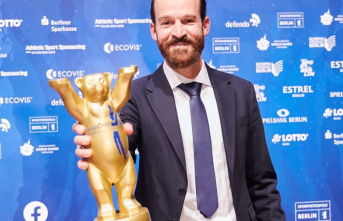A recent study shows that many young people run the risk of becoming hard of hearing because they listen to music too loud and do not take good care of their hearing. With "MySecondEar" you have founded an online acoustician. How does a hearing loss actually become noticeable?
In which everyday situations do hard of hearing people encounter the greatest barriers?
Hearing loss affects around 16 million people in Germany, the number of unreported cases is estimated to be even higher. How is it that so many people are affected?
Apart from loud noises, are there other causes of hearing loss?
Of course, stress is also a risk factor. We now know that too much stress can damage our sense of hearing, even leading to sudden hearing loss. And there is a genetic component.
Despite the high number of people affected, hearing loss is hardly an issue in society at large. Why?
I think there is a lack of enlightenment. Many people simply do not realize what impact their current behavior can have on their hearing in old age. I mean, they really lose a complete sense that doesn't come back either. Although you can counteract this with hearing aids or cochlear implants, it changes your life permanently.
You are now 30 years old and have been hard of hearing since childhood. How does that affect your life?
Today you have a modern hearing aid that spares you such experiences. How do you look back on your childhood today?
And how do you live with the hearing loss today?
How can I, as a family member, help to ensure that people who are hard of hearing do not feel isolated?
The most important thing is definitely attention. It helps enormously to make sure that the hearing-impaired person feels involved and to actively involve the person in the conversation. Also, it's best not to speak to him from the side, but face to face—and loud and clear. Also, if the hearing impaired don't understand something, simply rephrasing the sentence instead of repeating it helps.
You describe the moment when you got your first modern hearing aid at the age of 24 as "life-changing". Why?
And yet many people who are hard of hearing do not wear hearing aids...
Can you hear "normal" again with a hearing aid?
What do you recommend to people who are now thinking: "Shit, I think I'm hard of hearing"?












